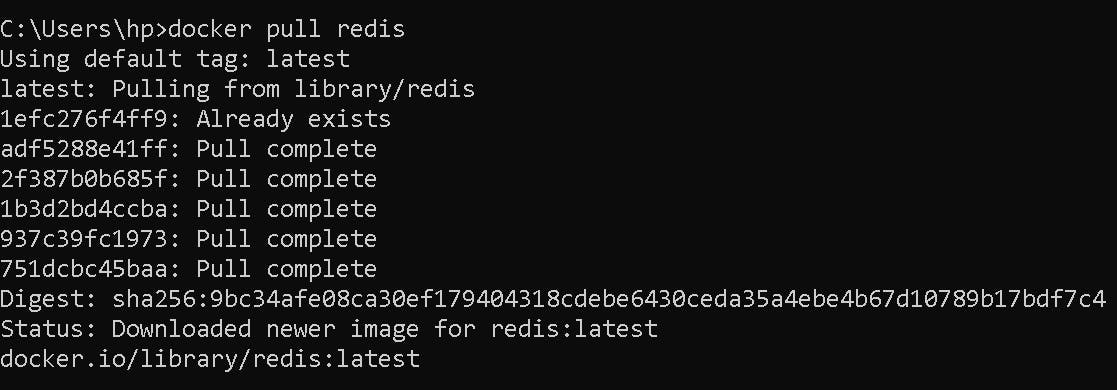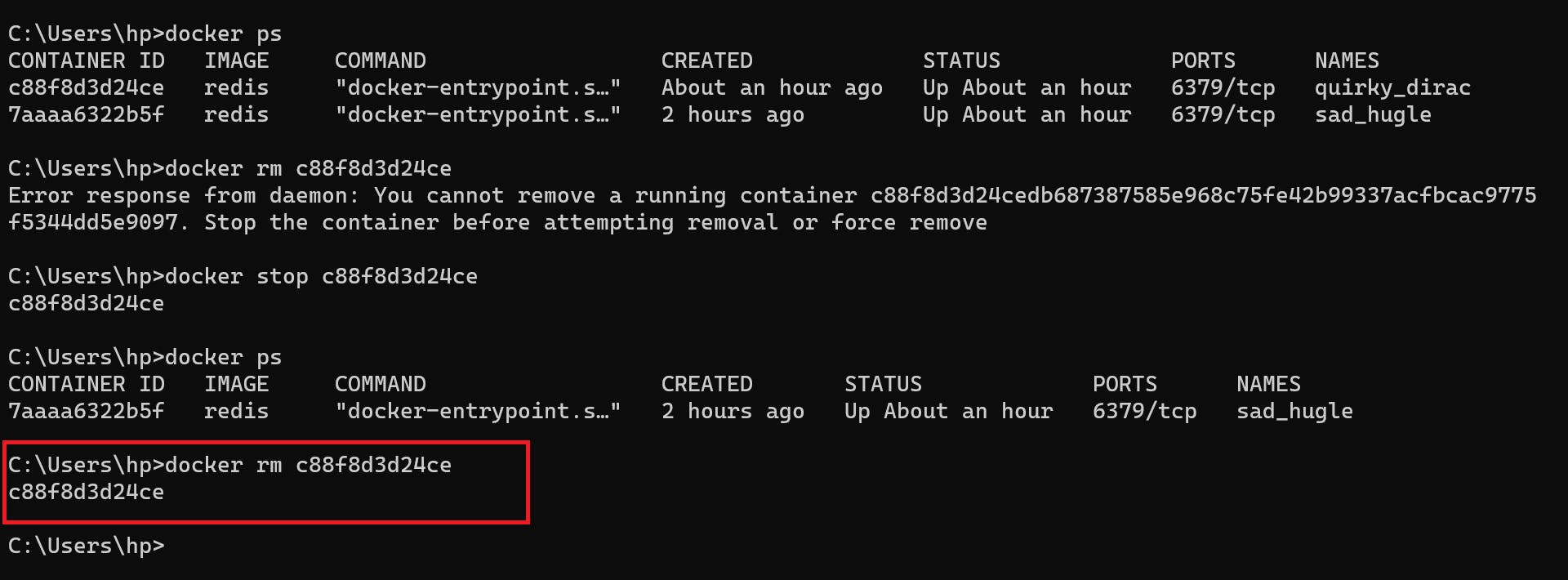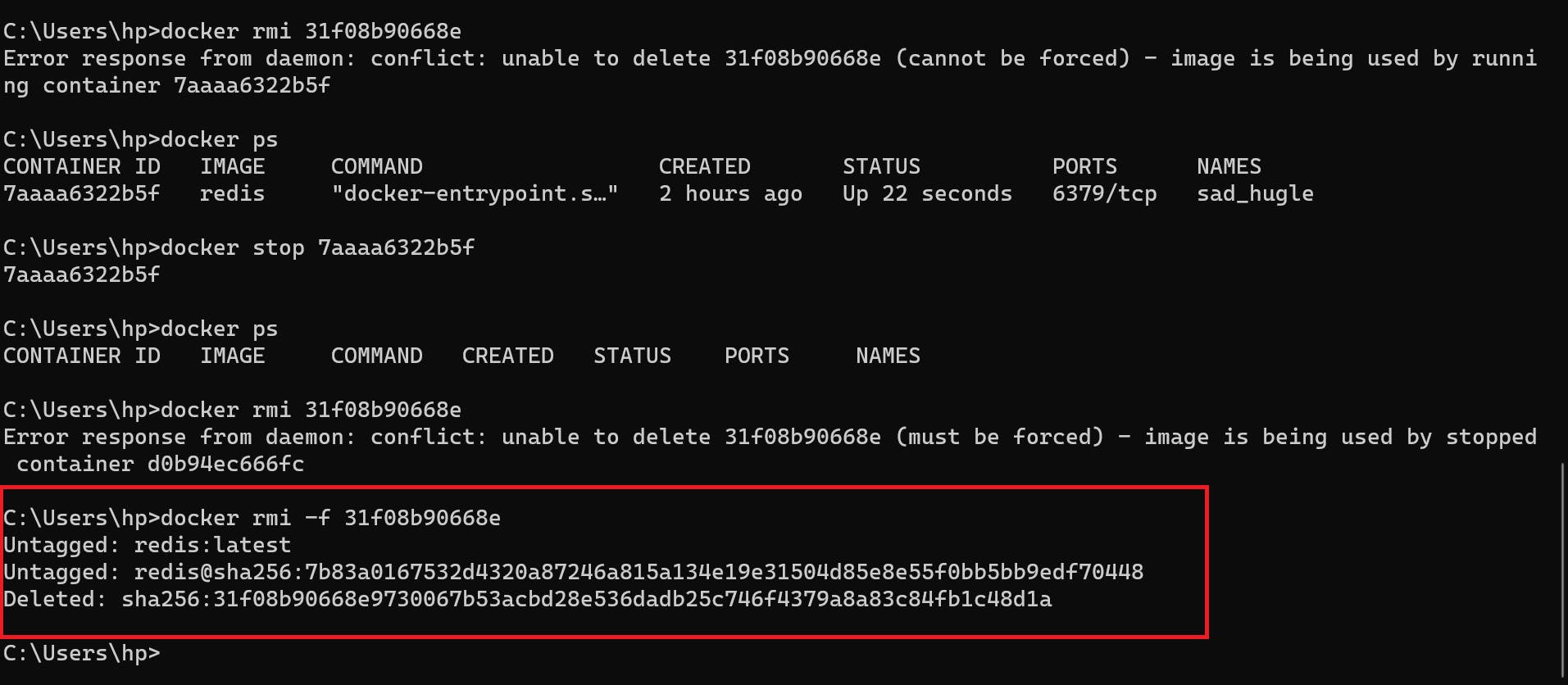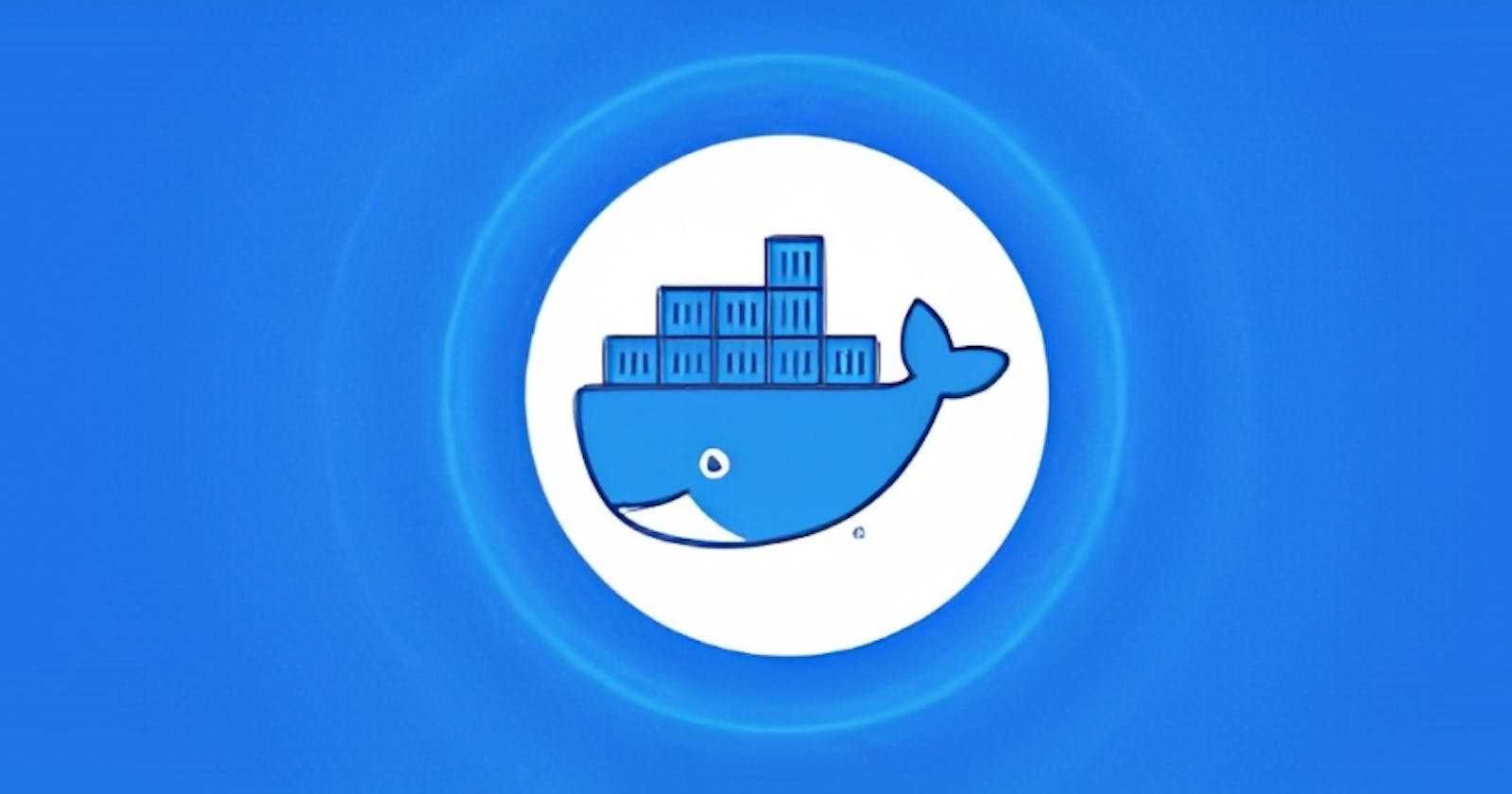docker info
Displays system information
docker info
docker login
Log in to Docker Hub
docker login
docker --version
Used to check your docker version
docker --version
docker pull
Which pulls the image from the repository to your local environment
docker pull redis # It will pull redis image

docker ps
It gives running container details.
docker ps

docker start
Restart a stopped container.
docker start 7aaaa6322b5f # write container id or name
#OR
docker start sad_hugle

#Note: CONTAINER ID and NAME is randomly generated. Check your CONTAINER ID and NAME by running the docker ps command.
docker stop
Use to stop running the container
docker stop CONTAINER_ID
# OR
docker stop NAMES

docker run
Which combines pull and start, pulls the image if it's not locally available and then starts it right away.
docker run node #It will pull and start the node container

docker run -d
Run the container in detached mode. This means that the container will run in the background and the console output will not be shown in the current terminal session.
docker run -d redis

docker ps -a
Which gives you all the containers no matter if they're running currently or not.
docker ps -a

docker run -p6000:6794
Allows you to bind the port of your host to the container
-p => port
6000 => The port of Host ( External Port )
6794 => The port of the container ( Internal Port )

docker images
Which gives you all the images that you have locally available.
docker images

docker rm
Remove the container from memory.
docker rm CONTAINER_ID
#OR
docker rm NAME

#Note: You can't remove running container directly first stop the container using docker stop CONTAINER_ID
docker rmi
Remove the image
docker rmi IMAGE_ID
#OR
docker rmi IMAGE_NAME
docker rmi -f IMAGE_ID # -f means forced fully remove image
#OR
docker rmi -f IMAGE_NAME
#Note: Delete all dependent containers to remove the image

Thanks for reading !!
